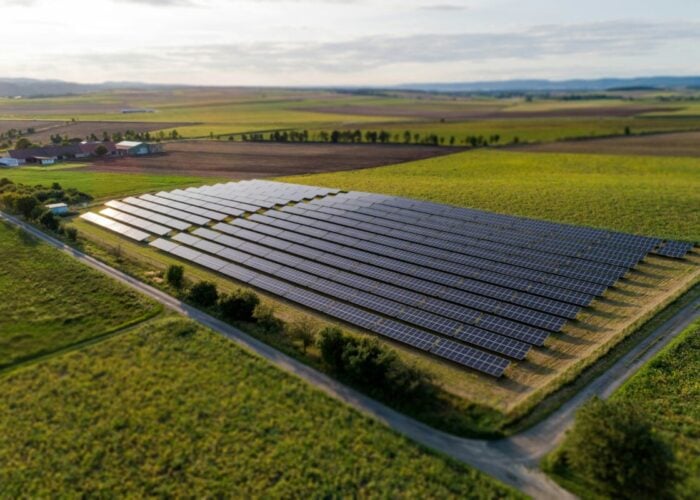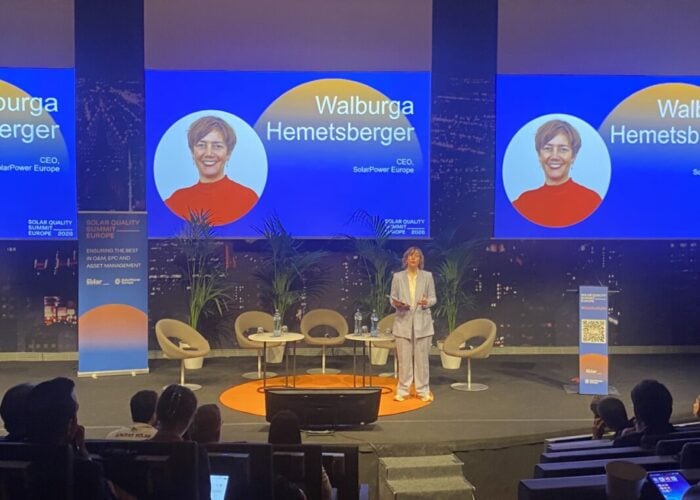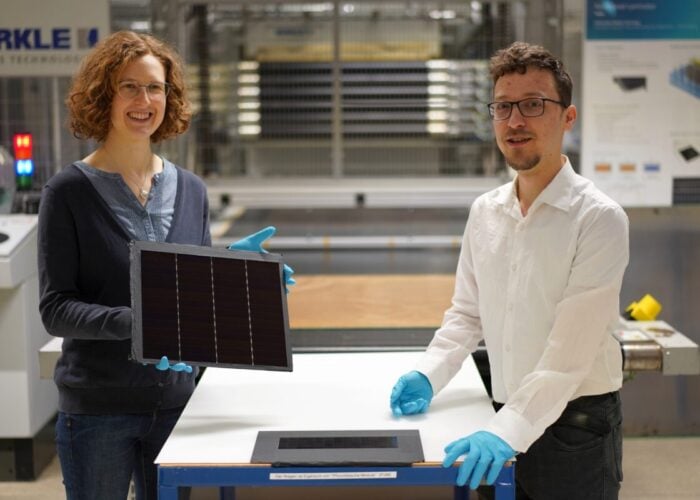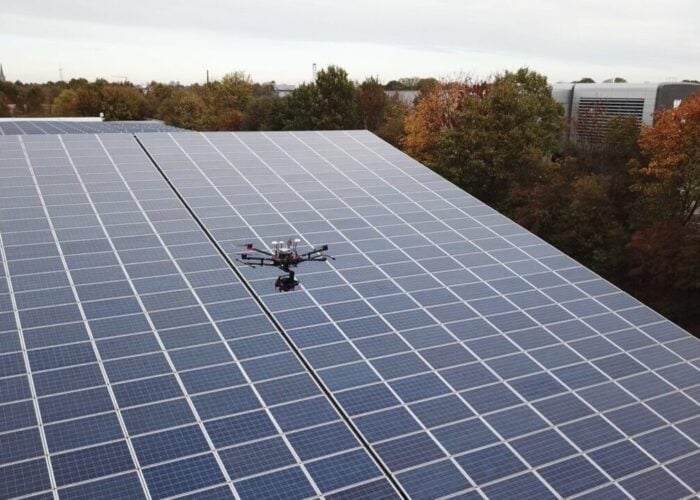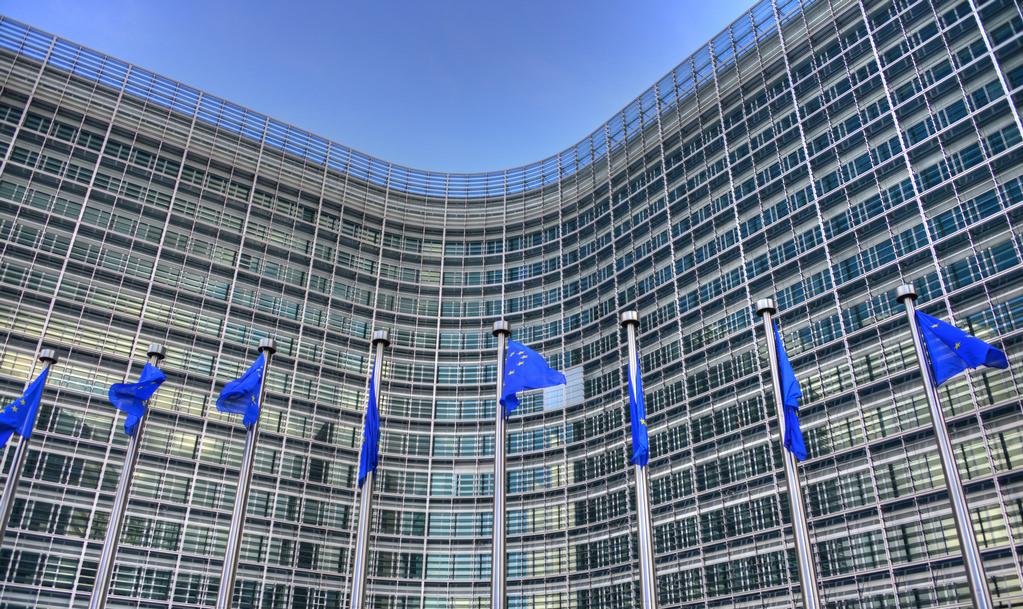
The heads of five major energy trade bodies in Europe have written to the European Union and member states urging them not to change the current power price setting mechanism in light of the continent’s energy crisis and instead pursue greater renewables rollout.
They have called on the trade bloc and its member states to shift away from fossil fuels, invest in clean energy alternatives, accelerate energy savings and unlock demand response, while avoiding changes to the current electricity price setting mechanism.
Try Premium for just $1
- Full premium access for the first month at only $1
- Converts to an annual rate after 30 days unless cancelled
- Cancel anytime during the trial period
Premium Benefits
- Expert industry analysis and interviews
- Digital access to PV Tech Power journal
- Exclusive event discounts
Or get the full Premium subscription right away
Or continue reading this article for free
“Short-term interventionist measures such as wholesale or retail price caps should be avoided,” said the letter. “Such measures impair the ability of the energy market to deliver an efficient and secure supply/demand balance in the spot market, increasing the cost of the energy transition.”
The letter said European electricity markets have “proven highly effective in ensuring a secure electricity supply to consumers, while providing incentives for clean investments” during the region’s energy crisis, adding that forward markets have “sent a powerful signal for investments in renewable energy, energy storage and consumer-driven solutions, including by way of Power Purchase Agreements (PPA) and long-term hedging.”
PV Tech Premium has examined the impact of Europe’s energy crisis on PPA contracts and merchant trading strategies in Europe as well as exploring how Russia’s invasion on Ukraine looks set to reshape Europe’s energy apparatus as member states scramble to establish new renewables targets and reduce their reliance on Russian fossil fuel imports.
The signatories – Mark Copley, CEO of the European Federation of Energy Traders (EFET); Kristian Ruby, secretary general of Eurelectric; Christian Baer, secretary general of Europex; Walburga Hemetsberger, CEO of SolarPower Europe; and Giles Dickson, CEO WindEurope – wrote to Ursula von der Leyen, president of the European Commission (EC) and other EC heavyweights as well as European heads of state and energy ministers.
They noted how, in the short-term, measures to protect customers from volatile energy prices were needed but said that direct support measures targeting vulnerable consumers was the “most cost-effective and least distortive way to meet the EU’s objective of clean energy independence”.
Signatories also advised that “preserving market signals and ensuring investor certainty is critical to channel the required volumes of private investments into renewable energy, carbon-neutral energy supply and infrastructure.”
“Any market interventions on electricity wholesale markets would not address the root problem of the current situation – an overreliance on imported fuels – and would fundamentally distort dispatch and investment signals indispensable to addressing the crisis,” the trade bodies said.
The heads of the trade bodies said Europe’s energy industry was “ready to put its experience and practical knowledge to the service of decision makers” but that it “wants the European Union to lead the resolution of this crisis situation”.
They called on the EC and all member states to ensure that “such input is taken into due account in future decisions”, while also criticising the decision by some countries to intervene in their domestic energy markets.
Individual decisions, such as the joint Spanish and Portuguese proposal of lowering Iberian electricity prices to a maximum of €30/MWh (US$33/MWh), are “the worst option to take as they unravel the Internal Energy Market and risk fracturing a strong, united European response,” the letter said.



